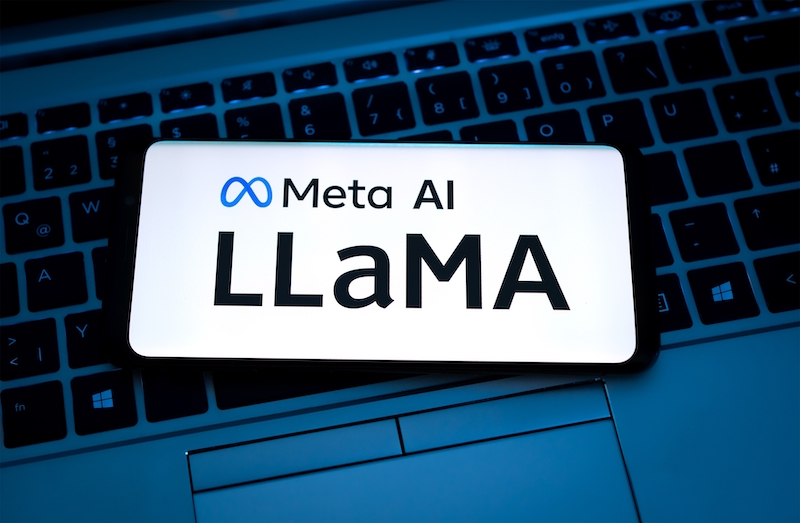The field of artificial intelligence (AI) is experiencing a tidal wave of innovation, with natural language processing (NLP) systems demonstrating unprecedented capabilities. This revolution is led by machine learning (ML) and large language models (LLMs) - AI systems that predict subsequent words in a sentence, enabling them to generate text that emulates human conversation and reasoning.

This remarkable advancement in AI has brought to light an array of applications that were previously in the realm of science fiction. In the past year alone, these systems have exhibited the capacity to generate creative content, write code, pass bar exams, and answer complex reading comprehension questions. They showcase the substantial benefits AI can offer at scale to millions of people.
At Next League, we have embraced this evolution by harnessing the power of LLMs by building an internal tool named LIGA (Learning and Insights through Generative Algorithms). LIGA isn't just another AI model; we've personified its interface as an avatar.
This makes interacting with LIGA more intuitive and engaging for our teams, fostering genuine and personal interactions. In fact, LIGA recently produced an overview video for our 2023 Industry Outlook Report, sharing key findings in a concise and engaging format.
LIGA has established itself as a valuable team member, not just as a tool. LIGA has helped our team immensely, successfully generating content, streamlining requirements, optimizing brainstorming and making complex data more understandable.
For example, LIGA has been essential in streamlining our product development process. It adeptly synthesizes product requirements, a task that has traditionally involved a combination of internal collaborations, technological constraints, and user needs into a precise, actionable format.
Moreover, LIGA plays a pivotal role in product and design brainstorming sessions. Previously, the manual process of condensing raw brainstorming outputs into actionable plans was labor intensive. With LIGA, we input these sessions' outputs, and it quickly filters through ideas, identifying themes and potential hurdles. This results in clear, actionable strategies that have accelerated our ideation process and improved our project planning efficiency.

We have leveraged LIGA's capabilities to interpret raw fan behavior data, revealing insightful patterns and trends. For instance, LIGA discerned increased fan engagement during high-pressure moments of a match. This observation enabled us to hypothesize that suspense-filled moments, which can make or break the game's outcome, significantly drive fan engagement. Such insights help us deliver tailored statistics and complementary content, enhancing fan interaction and overall experience.

Additionally, LIGA has been helpful in breaking down fan journeys and simulating scenarios that help inform and validate our decision making processes.

However, deploying AI systems is not without its challenges. Fine-tuning a large language model to match our organizational context, subject matter expertise, and tone of voice is labor-intensive and costly.
To address this, we adapted our approach to include prompt engineering, a more cost-effective method. By doing so, we can more directly guide the output of AI models. Instead of spending extensive resources on fine-tuning the model, we craft the input, or the 'prompt,' to direct the model to produce the desired output.
Despite the enormous potential of AI, we must be clear about its limitations. AI cannot understand the world like humans do. It lacks empathy and can't exhibit a high degree of common sense reasoning. It's also sensitive to user input and prompt construction. Addressing these limitations and navigating the challenges they pose is a part of our experimentation with LIGA.
We are entering an era where AI and ML are becoming integral to our internal processes, assisting with internal initiatives. It might not be long before they can handle some of these things with minimal human assistance.
More specific to our business, we envision a future where autonomous AI agents undertake larger initiatives like research assignments and assist with real-time data gathering. Could it be possible for them to transform data-only sports feeds into fan-facing narratives or create new ways for sports fans to interact with each other through AI-enabled conversational user interfaces? It is probably not too far away.
As we push the boundaries of AI experimentation, our exploration extends beyond just OpenAI's GPT models. We're actively tapping into open-source, self-hosted models based on Facebook's Large Language Model Meta AI (LLaMA), which offer us unique benefits. From cost optimization and enhanced data privacy to granular control over outputs, we can fine-tune these models with our localized data securely stored on our servers.

In successfully leveraging these technologies, we know we’ll solidify our position as a market leader in the rapidly evolving sports technology industry that is increasingly recognizing the power of AI and ML. The opportunities are many, and the boundaries are continually being pushed. Today, our exploration and adoption of LLMs are reshaping our internal processes. Tomorrow, they could redefine how we interact with sports data and amplify fan engagement. All we know for sure is that the journey is just beginning.

While we are excited about the possibilities, we are acutely aware of the challenges and ethical considerations these technologies bring. Responsible AI use, including being transparent about its limitations, respecting user privacy, and upholding data security, is central to our deployment strategy. As we further incorporate AI into our offerings, we remain committed to addressing these important realities.
What could these technologies do for your organization? Have you considered how they could transform your operations, products, and customer experience? As we push forward, we invite you to join us on this journey, exploring how AI can amplify your sports and technology offerings.
@KnowWhatIsNext
